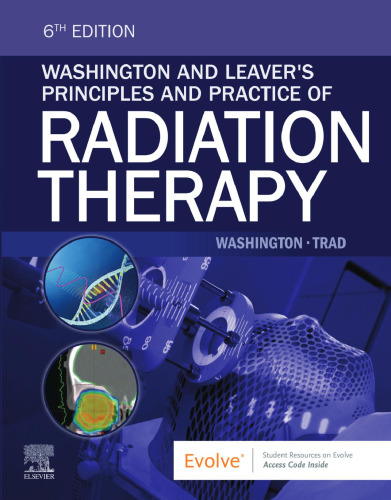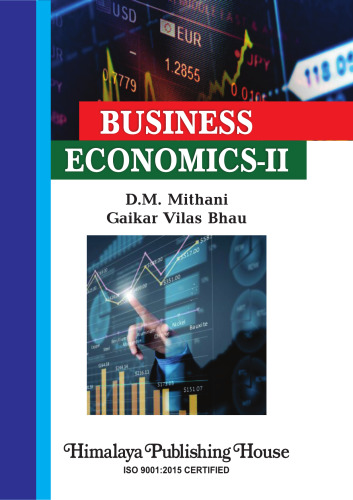When taught well, students from Foundation Year to upper primary enjoy their learning in science.
They come to see that learning in and about science will enrich their lives in many ways. For this to
happen teachers need to value science as an essential area of learning in assisting students towards
their development as autonomous and contributing members of society. Teachers’ beliefs about
science, learning science and teaching science are a dominant influence on how they effectively
interact with students and engage them with science. In this sixth edition we stress that quality
teachers are on a never-ending ‘learning’ journey. They, like us (authors), continually evaluate their
beliefs about science, learning science and teaching science. Such beliefs are key to how you will
assist students in their science learning. You need to see yourself as teachers who are on a
continuing journey in learning to teach science. The new Chapter 1 engages you in this conversation.
We hope you will participate in the journey as you interact with subsequent chapters.
As with earlier editions, we believe that effective primary science teaching will support students
in the formation and modification of their ideas to make better sense of how their world works.
This support extends to their understanding of how science ideas are derived, and assists their
agency in individual and social decision making in areas underpinned by scientific ideas and
processes.
This interpretation of learning science considers conceptual development, modification and
change a significant component of learning. Students take steps towards the concepts and
understandings currently accepted by the scientific community. Learning science is also interpreted
as students becoming members of a classroom-based science learning community – one in which
they develop scientific competencies and learn what it means to engage in inquiry-oriented
practices.
To achieve these aims, approaches to teaching primary science are espoused that are based on
the principle that we should teach in a way that is consistent with what we know about how
students learn. Research evidence indicates students construct their own ideas about how their
world works. They also can be assisted to develop their competencies and identities in the practices
of a scientific (classroom) community. Construction of ideas involves the interaction of the learner’s
existing ideas with experiences and ideas from peers, teachers and other sources. Therefore, the
sociocultural context is an ever-present consideration in how students learn.
Teachers need to be aware of these interlinked aspects if they are to move student thinking from
an ‘everyday’ to a ‘scientific’ way of looking at the world, and assist them in making decisions about
how to live sustainably in it. Consequently, there has been an increasing emphasis on scaffolding of
student learning.
The above, in broad terms, is a constructivist view of learning, a view that has personal, social
and cultural dimensions. This book encourages teaching that is consistent with this broad
constructivist view. It requires teachers to adopt a constructivist mindset about how learning occurs
and encourages them to use particular teaching strategies that support this view of learning. The
title of this book, Teaching Primary Science Constructively, endeavours to capture these ideals.
Consistent with this view of learning, this sixth edition continues to emphasise social
constructivism and the influence of the sociocultural context on learning. Within this context, the
importance of student dialogue has been further elaborated. At the same time, it does not devalue
the place of conceptual change linked with a personal constructivist perspective. Other factors now
known to impact on ‘constructivist learning’ are not overlooked. The influence of affect and
encouraging students to generate their own representations when explaining phenomena, for
example, is now recognised – they are integral to this edition. To assist student agency in decisionmaking
in everyday life, there is an increased emphasis on sustainability issues and numerous
examples of how students can engage with ‘science as a human endeavour’. Pedagogy associated
with socioscientific issues is also included.
چکیده فارسی
وقتی به خوبی آموزش داده میشود، دانشآموزان از سال پایه تا مقطع ابتدایی از یادگیری خود در علم لذت میبرند.
آنها می بینند که یادگیری در مورد علم و در مورد آن، زندگی آنها را از بسیاری جهات غنی می کند. برای این به
معلمان باید به علم به عنوان یک حوزه اساسی یادگیری در کمک به دانش آموزان در جهت
ارزش قائل شوند توسعه آنها به عنوان اعضای مستقل و مشارکت کننده جامعه. باورهای معلمان در مورد
علم، یادگیری علم و آموزش علم تأثیر غالب بر نحوه اثربخشی آنهاست
با دانش آموزان تعامل داشته باشید و آنها را با علم درگیر کنید. در این ویرایش ششم ما بر این کیفیت تاکید می کنیم
معلمان در یک سفر "یادگیری" بی پایان هستند. آنها نیز مانند ما (نویسندگان) به طور مستمر
خود را ارزیابی می کنند باورها در مورد علم، علم آموزی و آموزش علم. چنین باورهایی کلید این هستند که چگونه می خواهید
به دانش آموزان در یادگیری علوم کمک کند. شما باید خود را معلمانی ببینید که در
هستند ادامه سفر در یادگیری برای آموزش علوم. فصل 1 جدید شما را درگیر این گفتگو می کند.
ما امیدواریم که شما در سفر با فصل های بعدی شرکت کنید.
مانند نسخه های قبلی، ما معتقدیم که آموزش موثر علوم اولیه از دانش آموزان حمایت می کند
در شکلگیری و اصلاح ایدههایشان برای درک بهتر نحوه عملکرد دنیایشان.
این پشتیبانی به درک آنها از نحوه استخراج ایده های علمی گسترش می یابد و به آنها کمک می کند
عاملیت در تصمیم گیری فردی و اجتماعی در زمینه هایی که زیربنای ایده های علمی و
است فرآیندها.
این تعبیر از یادگیری علم توسعه مفهومی، اصلاح و
را مد نظر دارد مولفه مهمی از یادگیری را تغییر دهد. دانش آموزان به سمت مفاهیم و
قدم برمی دارند درک هایی که در حال حاضر توسط جامعه علمی پذیرفته شده است. علم آموختن نیز تفسیر می شود
به عنوان دانش آموزانی که به عضویت یک جامعه یادگیری علوم مبتنی بر کلاس درس در می آیند - جامعه ای که در آن
آنها شایستگی های علمی را توسعه می دهند و می آموزند که به چه معناست درگیر شدن در تحقیق محوری
تمرینات.
برای دستیابی به این اهداف، رویکردهایی برای آموزش علوم ابتدایی مورد حمایت قرار می گیرد که بر اساس
است این اصل که ما باید به گونه ای آموزش دهیم که با آنچه در مورد چگونگی می دانیم سازگار باشد
دانش آموزان یاد می گیرند شواهد پژوهشی نشان میدهد که دانشآموزان ایدههای خود را در مورد چگونگی
خود میسازند جهان کار می کند همچنین میتوان به آنها کمک کرد تا شایستگیها و هویتهای خود را در فعالیتها توسعه دهند
یک جامعه علمی (کلاس درس). ساخت ایده ها شامل تعامل بین یادگیرنده می شود
ایده های موجود با تجربیات و ایده های همتایان، معلمان و سایر منابع. بنابراین،
زمینه اجتماعی-فرهنگی یک ملاحظه همیشه در نحوه یادگیری دانش آموزان است.
معلمان باید از این جنبه های مرتبط با هم آگاه باشند اگر می خواهند تفکر دانش آموز را از
سوق دهند. نگاهی "روزمره" تا "علمی" به جهان و کمک به آنها در تصمیم گیری در مورد
چگونه پایدار در آن زندگی کنیم در نتیجه، تاکید فزاینده ای بر داربست
شده است یادگیری دانش آموز.
آنچه در بالا گفته شد، به طور کلی، دیدگاهی سازنده گرایانه از یادگیری است، دیدگاهی که دارای دیدگاه شخصی، اجتماعی است
و ابعاد فرهنگی این کتاب آموزشی را تشویق می کند که با این گسترده سازگار باشد
دیدگاه سازه انگاری معلمان را ملزم می کند که یک ذهنیت سازنده گرا در مورد چگونگی وقوع یادگیری اتخاذ کنند
و آنها را تشویق می کند تا از راهبردهای آموزشی خاصی استفاده کنند که این دیدگاه از یادگیری را پشتیبانی می کند.
عنوان این کتاب، آموزش سازنده علوم ابتدایی، در تلاش است تا این آرمان ها را به تصویر بکشد.
مطابق با این دیدگاه از یادگیری، این ویرایش ششم همچنان بر اجتماعی
تاکید دارد ساختگرایی و تأثیر بافت اجتماعی-فرهنگی بر یادگیری. در این زمینه،
اهمیت گفتگوی دانشجویی بیشتر توضیح داده شده است. در عین حال، ارزش آن را کاهش نمی دهد
مکان تغییر مفهومی مرتبط با دیدگاه سازنده گرایی شخصی. اکنون عوامل دیگر
شناخته شده برای تأثیر بر "یادگیری سازنده" نادیده گرفته نمی شود. تأثیر عاطفه و
تشویق دانشآموزان به ایجاد بازنماییهای خود هنگام توضیح پدیدهها، برای
به عنوان مثال، اکنون شناخته شده است - آنها جزء لاینفک این نسخه هستند. کمک به آژانس دانشجویی در تصمیم گیری
در زندگی روزمره، تأکید فزاینده ای بر مسائل پایداری و تعداد زیادی
وجود دارد نمونه هایی از چگونگی مشارکت دانش آموزان با "علم به عنوان یک تلاش انسانی". آموزش مرتبط
با مسائل علمی اجتماعی نیز گنجانده شده است.
ادامه ...
بستن ...
Ebook details:
عنوان: Teaching Primary Science Constructively
نویسنده: Keith Skamp; Christine Preston
ناشر: Melbourne : Cengage Learning AUS, 2017.
زبان: English
شابک: 0170282430
حجم: 25 Mb
فرمت: True Pdf
ادامه ...
بستن ...
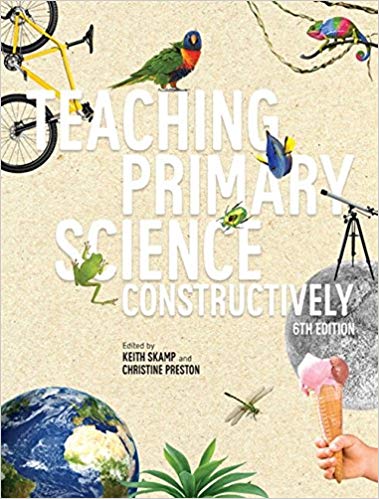


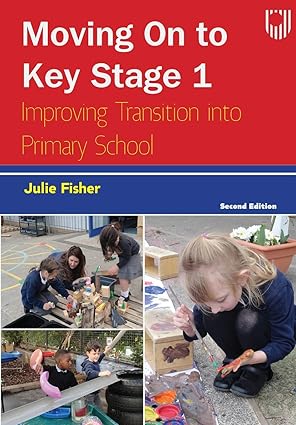
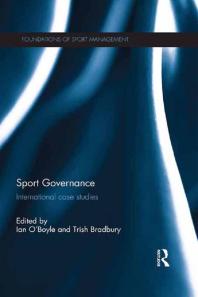
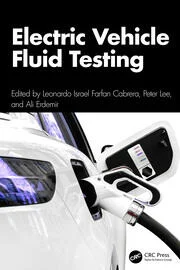


![Our mission to the court of Marocco [Morocco] in 1880, under Sir John Drummond Hay - pdf Our mission to the court of Marocco [Morocco] in 1880, under Sir John Drummond Hay - pdf](https://dl.libsan.ir/images/1/12/112108724_694b9e9769312.jpg)
